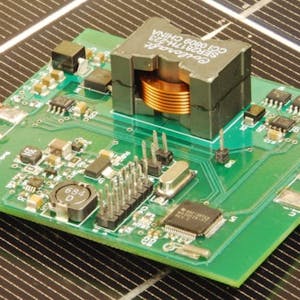This comprehensive course, "Magnetics for Power Electronic Converters," offered by the University of Colorado Boulder, provides a deep dive into the intricacies of magnetic components used in power electronic converters. Through a series of modules, students will gain a thorough understanding of inductors and transformers, their design, losses, and optimization for switched-mode power converters.
The course begins with a thorough introduction to the physical principles behind inductors and transformers, covering concepts such as inductance, core material saturation, airgap, energy storage, reluctance, and magnetic circuit modeling. This sets the stage for delving into the modeling of losses in magnetic components, encompassing core and winding losses, including skin and proximity effects. The course further explores the development of multi-winding transformer models, with a focus on inductance matrix representation for series and parallel structures.
One of the course's key strengths lies in the provision of a complete procedure for the design optimization of inductors in switched-mode power converters. Through a series of modules, students will be equipped to analyze and model losses in magnetic components, understand design trade-offs, and effectively design and optimize inductors and transformers for switched-mode power converters.
Certificate Available ✔
Get Started / More Info
This course comprises several modules that cover a range of topics, from basic magnetics and AC copper losses to inductor and transformer design. Students will gain comprehensive insights into the analysis and design of magnetic components for power electronic converters.
The first module, "Basic Magnetics," provides a foundational understanding of magnetic components, delving into basic relationships, magnetic circuits, transformer modeling, and loss mechanisms. Students will also engage in study problems and homework assignments to reinforce their learning.
The second module, "AC Copper Losses," delves into the intricacies of AC winding losses, including the skin and proximity effects, leakage flux in windings, power loss in a layer, and PWM waveform harmonics. This module also includes study problems and homework assignments for practical application.
The third module, "Inductor Design," explores several types of magnetic devices, B-H loops, core versus copper losses, and constraints in filter inductor design. Students will engage in a first-pass design and examples of coupled inductors for practical application, alongside homework assignments.
The fourth module, "Transformer Design," focuses on the basic constraints of transformer design, first-pass design procedures, and practical examples of single-output isolated Cuk converters and multiple-output full bridge buck converters. Homework assignments are included to reinforce learning.
This course provides a comprehensive understanding of FPGA design for embedded systems, covering topics such as Verilog, VHDL, soft-core processors, and FPGA development...
Battery Comparison, Manufacturing, and Packaging: Gain insight into battery management systems, cell balancing, and state of charge and health estimation.
Fundamentals of Audio and Music Engineering: Part 1 delves into acoustics, electronics, and their applications in creating music with electronic instruments.
This course offers a comprehensive exploration of transmission line design, modeling, and performance assessment, equipping participants with theoretical knowledge...